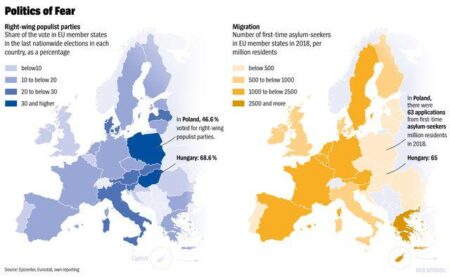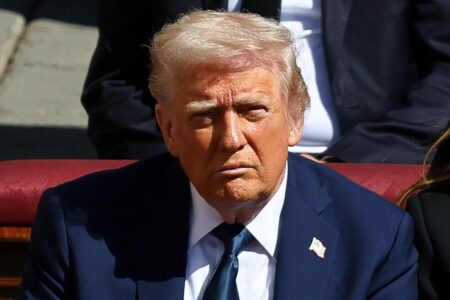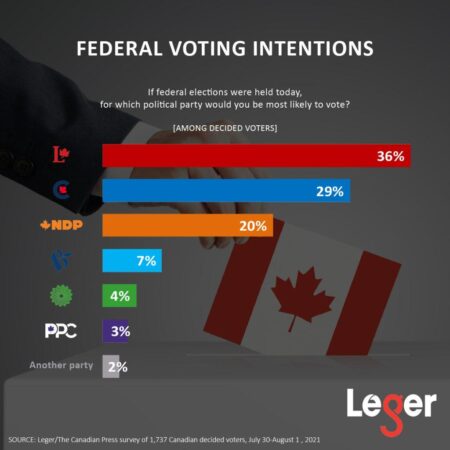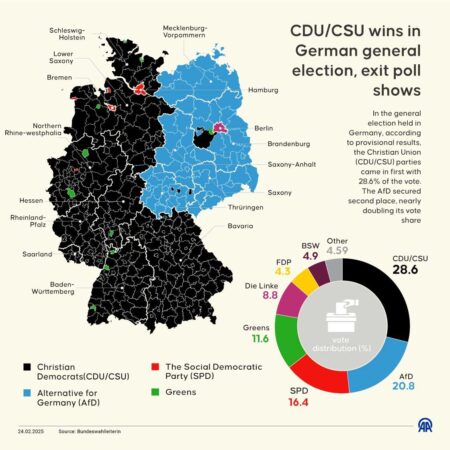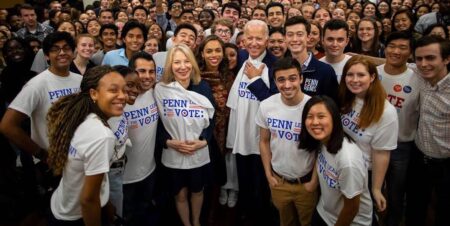As Trump allies intensify their outreach in Alberta, the local passion for separatism is starting to wane. The province’s independence movement seems to be losing momentum as its connections with U.S. political figures grow stronger
Browsing: political trends
Javier Milei’s party pulled off a stunning upset in the midterm elections, defying recent poll predictions. This triumph signals a powerful wave of voter enthusiasm sweeping through Argentina amid ongoing political uncertainty
Italy’s Prime Minister Giorgia Meloni is reshaping the far right’s image, captivating Gen Z with a compelling mix of nationalism and social media savvy. Her rise marks an exciting new chapter in how young Europeans are connecting with politics
Early forecasts reveal a dramatic surge in support for Germany’s far-right parties, with backing tripling in recent local elections. Experts warn this sharp increase highlights a rise in nationalism and intensifying political polarization sweeping across the country
Populist right-wing parties are surging in polls across Europe’s largest economies, signaling a dramatic shift in voter sentiment. This rising wave is igniting fierce debates about the future direction of the EU’s political landscape
A recent Jiji poll reveals that over 20% of Japanese respondents are enthusiastically supporting the idea of an opposition-led government. These findings highlight a growing public desire for new political options in the face of ongoing challenges
Recent electoral setbacks for conservative parties in Australia and Canada have unveiled intriguing parallels. Voter frustration over critical issues like climate policy and economic management is driving a significant shift in political loyalties, compelling right-leaning leaders to engage in urgent self-reflection.
As the world eagerly anticipates the upcoming elections in Australia and Singapore, analysts are sounding the alarm about Donald Trump’s significant influence. His captivating populist rhetoric and divisive approach could play a pivotal role in shaping voter sentiments and party strategies across both nations.
Germany’s new chancellor, initially seen as reserved, is stepping into the spotlight with a surprisingly vibrant leadership style. As he tackles intricate domestic and international challenges, his remarkable adaptability could reshape the nation’s political landscape in exciting ways.
Australia’s Anthony Albanese has emerged triumphant in the recent election, riding a powerful wave of anti-Trump sentiment. His victory signifies a remarkable transformation in the political landscape, as voters yearn for a fresh start and a break from divisive leadership.
The surge of right-wing Christian populism is transforming the landscape of Australian politics, leaving a significant mark on policy discussions and party interactions. The increasing sway of this movement is clearly visible in election results and vibrant grassroots activism, showcasing the evolving sentiments of voters throughout the country.
In an exciting turn of events, early voter turnout in Canada has skyrocketed to a remarkable 7.3 million ballots cast, smashing all previous records! This impressive surge showcases a newfound enthusiasm among Canadians as they gear up for the polls, highlighting a vibrant and dynamic electoral landscape where every voice matters.
Amid a remarkable rise in the popularity of MAGA hats, a growing number of Australians are voicing their admiration for Donald Trump. Enthusiastic supporters highlight his no-nonsense style, impactful economic policies, and bold nationalistic rhetoric as captivating traits that strike a chord even far beyond U.S. shores
In the recent US election, young men demonstrated a significant shift towards Trump and conservative ideals, raising questions about similar trends in Australia. Analysts are now examining whether this growing alignment could impact the current political landscape down under.
As Germany’s political landscape shifts rightward, experts from the Atlantic Council analyze the implications of the recent election results. They delve into how this trend could reshape Germany’s domestic policies and its role in the European Union.
In the wake of Germany’s recent elections, the CDU/CSU and SPD are set to commence preliminary talks aimed at forming a potential coalition government. These discussions mark a crucial step in shaping the country’s political landscape following a tightly contested vote.
Sahra Wagenknecht, a prominent figure in German politics, has witnessed both meteoric rises and sharp declines. Once celebrated as a visionary leader of the left, her controversial stances and internal party conflicts have reshaped her trajectory, prompting discussions about the future of the political landscape in Germany.
In a significant shift, German conservatives emerged victorious in the latest elections, securing a decisive lead. Meanwhile, the far-right Alternative for Germany (AfD) achieved its best electoral performance to date, marking a notable rise in its influence.
Polls have opened in Germany for a pivotal election that is being closely monitored by European leaders and the US. With issues like economic stability and climate policy at stake, the outcome could significantly influence the continent’s future trajectory.
Young voters in Germany are increasingly turning to the far-right Alternative for Germany (AfD) party, driven by concerns over immigration, economic instability, and climate change. This shift marks a significant change in the political landscape, challenging traditional parties.





